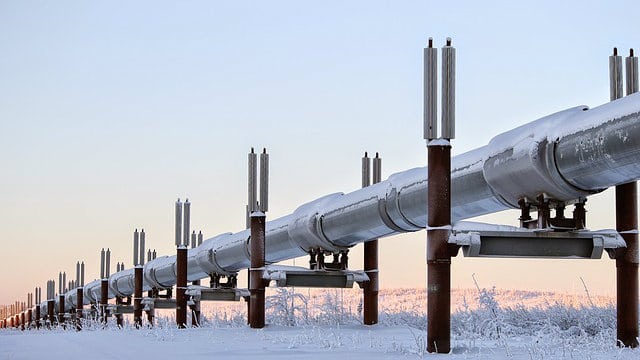We’re coming up on the one-year anniversary of Kinder Morgan Canada Ltd.’s (TSX:KML) initial public offering (IPO). If you’d bought shares in the pipeline operator’s IPO, you’re sitting on a whopping $0.28 gain in the 11 months since.
At the time of its IPO, I’d called it a “dog with fleas,” a line made famous by Michael Douglas in the movie Wall Street. One year later, I still think it’s a dog with fleas. Here’s why.
What’s changed?
I didn’t like the Kinder Morgan Canada IPO because I thought the company was simply passing the buck by putting the risk of the Trans Mountain expansion in the hands of retail and institutional investors here in Canada and taking it away from Kinder Morgan Inc. (NYSE:KMI).
I mentioned three issues I had with the Kinder Morgan Canada IPO: debt, politics, and cost overruns. Let’s have a look at how each of those is faring today.
Debt
As a result of the IPO, Kinder Morgan Canada repaid $1.4 billion in debt it owed its parent and also made an additional $262 distribution with the remaining proceeds. Kinder Morgan Canada got none of the proceeds.
I’m rarely a fan of IPOs. That’s especially true when the company going public doesn’t get any of the cash from the offering.
Today, it has no debt and $210 million in cash — it did raise almost $500 million in two preferred share offerings in August 2017 and December 2017 — although that’s likely to change should the Trans Mountain expansion actually go ahead.
In its Q1 2018 earnings release, it said it’s allocated $1.8 billion toward the $7.4 billion expansion in 2018, most of which it would have to borrow.
On April 8, Kinder Morgan Canada announced that it was suspending all non-essential activities and related spending for the Trans Mountain expansion until it got assurances the project could safely be completed.
The politics of it all
Bill Morneau is holding talks with both the Alberta and B.C. provincial governments as well as Kinder Morgan Canada itself to come up with a way to reduce the risk of the project, so it can go ahead by the company’s self-imposed May 31st deadline.
A recent survey suggests Canadians, and British Columbians in particular, are beginning to warm to the idea of a pipeline expansion in the Lower Mainland. According to Angus Reid, more than 50% of Canadians feel the expansion is a good thing for the Canadian economy.
Interestingly, a majority feel Kinder Morgan has done a terrible job promoting the project so that Canadians would have gotten behind it from the beginning.
Frankly, I don’t think it’s surprising at all that Kinder Morgan failed to educate the public as to why its pipeline expansion was good for the country. It’s done a terrible job educating investors why it’s a good idea to own 30% of the company that’s building the pipeline.
How else can you explain its stagnant share price?
Cost overruns
To date, Kinder Morgan Canada has spent $1 billion on the pipeline expansion with another $1.8 billion to be spent this year should it go ahead.
Originally expected to be finished by the end of 2019, Kinder Morgan has pushed that to December 2020. Given the nature of infrastructure projects, you can be sure that means December 2021 and a billion or more in additional cost overruns simply due to the passing of time. The company loses out on $75 million in earnings for every month its in-service date gets pushed back.
It wouldn’t surprise me if it cost $10 billion by the time all is said and done.
The bottom line on Kinder Morgan Canada’s stock
Last May, when I wrote my original article about its IPO, Kinder Morgan’s long-term debt (the parent) was 81% of its $43.2 billion market cap. Today, it’s 96% of its $36.3 billion market cap. I argued that compared to Exxon Mobil Corporation, its debt level was huge, and the situation has only gotten worse.
The Canadian business generated $160.7 million in income in 2017, $28 million of which is attributable to those holding the restricted voting shares sold in its IPO. The dividend accounts for most of that.
Is the 3.8% dividend yield really worth it? I don’t believe it is. It’s a dog with fleas.









